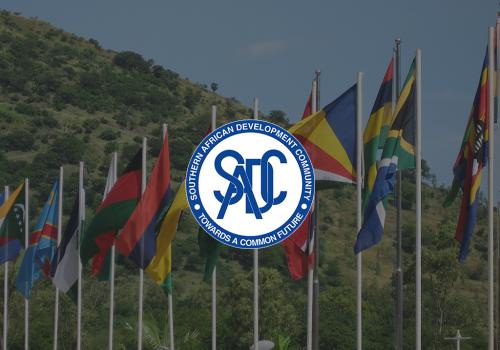The Southern African Development Community (SADC) Secretariat convened a five-day capacity-building workshop in the Kingdom of Lesotho from 4-8 March 2024 aimed at enhancing capacity on food safety principles and promoting general awareness on sanitary requirements that are needed for participating in exporting food products and agriculture commodities in the European Union (EU) market.
The EU and SADC signed an Economic Partnership Agreement (EPA) commonly known as the EU SADC EPA with Botswana, Eswatini, Lesotho, Namibia, Mozambique, and South Africa to preserve market access and preferences.
Agriculture is one of the sectors that benefits extensively from the improved market access under the EU SADC EPA particularly sugar, dairy products, canned fruits, flowers and fisheries.
Mr. Lebusetsa Pholosi, Programme Officer, EPA Unit at the SADC Secretariat highlighted that the EU grants 100 percent duty-free quota-free access for products originating from Botswana, Eswatini, Lesotho, Namibia, and Mozambique and removes customs duties on 98.7% of imports coming from South Africa.
Nonetheless, exporters of food products and agriculture commodities in the SADC EPA Member States are still facing inadequate technical capacity to effectively implement food control systems required to benefit from the EU SADC EPA. Further, high production, transportation, and marketing costs, lack of testing facilities and conformity assessments represent significant barriers to entry and trade in the EU market.
The major challenge impeding growth of exports in food products and agriculture commodities from SADC EPA Member States to the EU Market is non-compliance with Non-Tariff Measures (NTMs) in the form of Sanitary and Phytosanitary (SPS) requirements partly as a result of inadequate knowledge about SPS principles among producers and potential exporters.
In this regard, the SADC Trade Facilitation Programme (TFP) which is funded by the EU and implemented by the SADC Secretariat conducted a series of national capacity building workshops on SPS Measures in Botswana, Eswatini, Lesotho, Mozambique and Namibia.
The workshops were important platforms for engaging with stakeholders in identifying existing gaps in the Application of the SPS Agreement as well as creating awareness among public and private sectors of SADC EPA Member States on SPS Principles.
In her opening remarks, Ms. Nthabeleng Maphike, Senior Trade Promotion Officer at the Lesotho Ministry of Trade, Industry and Business Development said it is encouraging to observe that some entrepreneurs have already established their presence in the EU market, however the overall trade between Lesotho and the EU has not seen substantial growth, except for products with minimal value addition.
She further noted that the capacity building workshop will address the existing information gaps to enable the private sector to appreciate the requisite conditions for entry into the EU market and participate more effectively in trade under the EU SADC EPA.
The SADC EPA Member States are required to establish and enhance their technical capacity to facilitate the implementation and monitoring of SPS measures, including promoting greater use of international standards and other matters concerning SPS.
The workshops were attended by government officials engaged in enforcing SPS measures and private sector producers, processors, exporters and importers of food products and agriculture commodities.
The conclusions of the capacity building workshops will assist SADC Secretariat in developing an SPS Implementation Plan which will include recommendations on actions to improve the operation and performance of the SPS management system in SADC EPA Member States.

